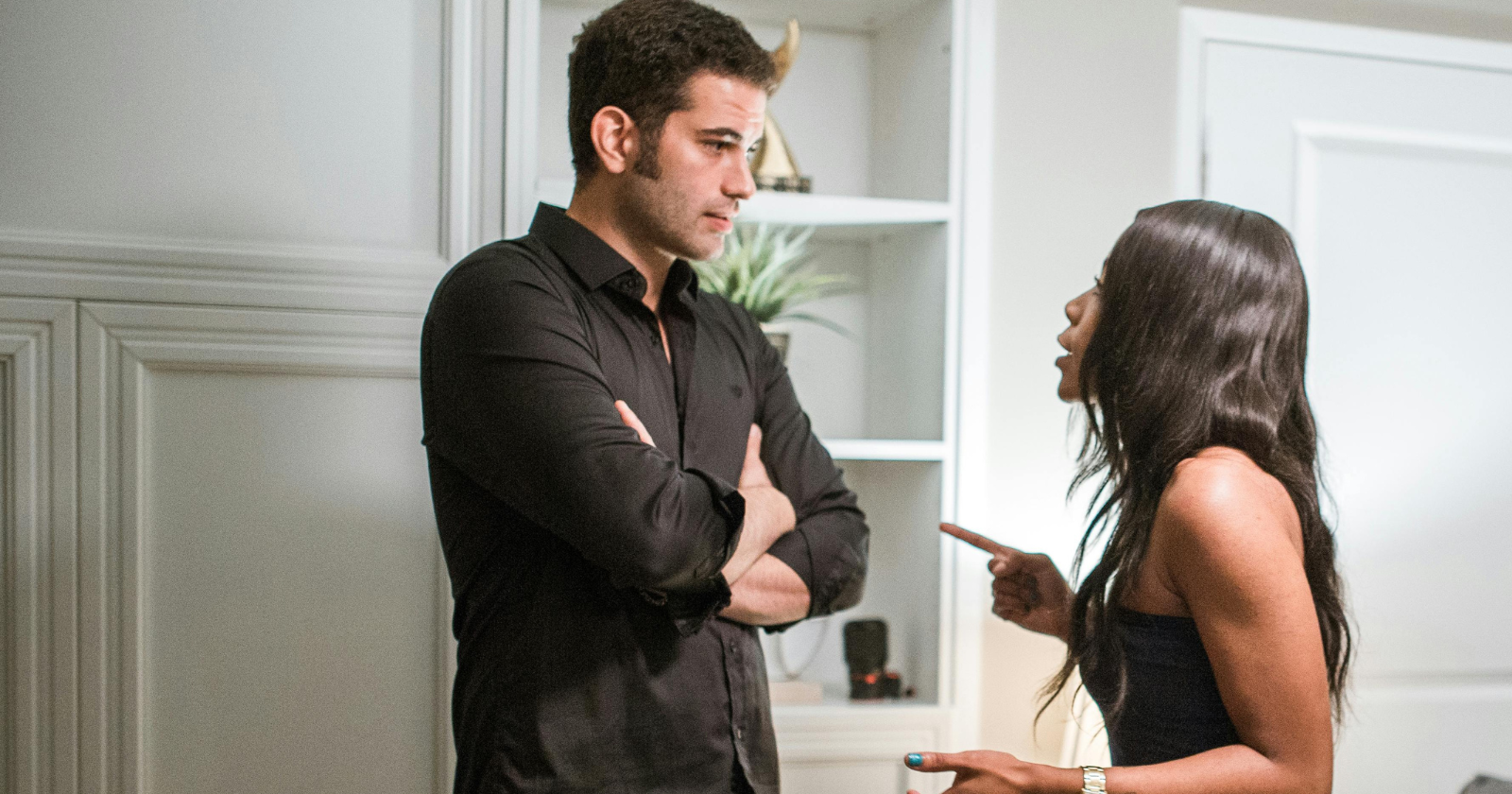We all love the sweet sound of chatter, don’t we?
The joy of connecting with others, the shared laughter, the feeling of being understood, and even the silent comfort in knowing someone’s there for you.
But here’s the kicker.
Sometimes, even with the best intentions, we unintentionally push people away with our words. Phrases we think are harmless can create invisible barriers between us and others.
So, if you’ve been scratching your head wondering, “Why do I struggle to connect?” then this article might just hold the answer.
In the next few minutes, I’m going to share seven little phrases that could be acting like social repellents without you even realizing it.
These aren’t grand gestures or glaring faux pas. No, these are subtle expressions that can unknowingly create distance.
And guess what?
They’re more common than you think. Understanding these phrases and their impact could be your first step towards building stronger, more rewarding connections.
So, let’s dive in and explore these seven phrases that might just be pushing people away.
Remember, communication is an art – a delicate balance between expressing ourselves and fostering connections. Let’s get better at it together!
1) “You’re overreacting”
We’ve all been there, haven’t we?
In the middle of a heated discussion, someone drops the ‘O’ bomb – “You’re overreacting.” It feels like a slap in the face, doesn’t it?
This phrase, while often used with good intentions to calm a situation, can do more harm than good.
Here’s why.
When we tell someone they’re overreacting, we’re essentially invalidating their feelings. We’re saying that their reaction isn’t warranted or that their emotions are too intense.
And guess what happens next?
This leads to feelings of confusion and self-doubt.
They may start to question their own emotions and reactions, which can be incredibly damaging to their self-esteem.
Instead, try acknowledging their feelings and offering support. Phrases like “I can see you’re upset” or “Let’s work through this together” can make a world of difference.
Remember, words have power. Let’s use them to build bridges, not walls.
2) “I told you so”
Let me share a personal story with you.
A few years back, I had a friend who was determined to start a business. He was excited and full of energy, but I was skeptical.
Despite my reservations, he went ahead and launched his startup.
Sadly, things didn’t go well, and the business eventually failed. I remember meeting him for coffee after the dust had settled. He was disappointed and feeling low.
I had a choice in that moment. I could say, “I told you so,” or I could offer support.
But here’s the thing: saying “I told you so” would only have served to make him feel worse. It wouldn’t have helped the situation or offered any constructive advice.
So instead, I said, “I’m sorry things didn’t work out as planned. What can we learn from this experience?”
The phrase “I told you so” only pushes people away by making them feel inferior and regretful. It’s better to offer support and understanding when others are going through a tough time.
Remember, our words can either lift people or knock them down. Let’s choose the former.
3) “Whatever”
“Whatever.”
One word. Seven letters. But oh, the damage it can do.
This little phrase can be a grenade in conversations, blowing up bridges and creating chasms of disconnect.
It’s often used as a defense mechanism, a way to retreat from a conversation that feels too uncomfortable or contentious.
But in reality, it communicates indifference and disregard. It says, “I don’t care enough to engage with you on this issue.” And that can be pretty hurtful.
For instance, if someone shares their concerns with you, and your response is a casual “whatever”, it can leave them feeling dismissed and unimportant.
And before you know it, they’re drifting away, their trust in your relationship chipping off bit by bit.
So next time, instead of reaching for that easy “whatever”, try saying “I hear you” or “Let’s talk about this more”. It could make all the difference.
After all, communication isn’t just about speaking; it’s about listening too. Let’s not forget that.
4) “But at least…”

Life is full of ups and downs, isn’t it?
Sometimes, our instinct is to comfort others by trying to find the silver lining in their situation. We say things like “But at least you have your health” or “But at least you still have a job.”
Sounds comforting, right?
Wrong.
While our intentions are good, this phrase can unintentionally minimize a person’s feelings or struggles.
It’s like saying their problem isn’t big enough or important enough to warrant their reaction.
No one wants their feelings dismissed or their problems downsized.
Instead, we should strive to validate their feelings and empathize with their situation. Phrases like “That sounds tough” or “I’m here for you” communicate that we acknowledge their struggle and are there to support them.
Remember, empathy is the foundation of connection. Let’s make sure our words reflect that.
5) “Calm down”
“Calm down.” Two words that are guaranteed to do anything but calm a person down.
Research has shown that telling someone to calm down can increase their agitation.
Why? Because instead of addressing the root cause of their distress, we’re telling them to suppress their feelings.
It’s like trying to put out a fire with fuel.
When someone is upset or angry, their emotions are running high. By telling them to “calm down”, we risk invalidating their feelings and escalating the situation further.
Instead, let’s approach with empathy and understanding. A simple “I see that you’re upset, let’s talk about this” can go a long way in defusing tension and fostering better communication.
After all, the secret to strong connections lies in understanding, not suppression. Let’s keep that in mind.
6) “It’s not a big deal”
“It’s not a big deal.”
When said with kindness and understanding, these words can be comforting. But when they’re used to dismiss someone’s emotions or struggles, they can be incredibly damaging.
Imagine you’ve just shared something that’s bothering you, and the response you get is “It’s not a big deal”. It feels like a punch in the gut, doesn’t it?
What might not seem like a big deal to us could be a huge deal to someone else. By dismissing their feelings, we’re telling them that their concerns don’t matter.
Instead, let’s choose our words with care and empathy. Try phrases like “I understand why this would upset you” or “I’m here for you”.
It’s about acknowledging their feelings and offering our support.
And who knows? That simple act of kindness might just be the big deal they needed.
7) “Just kidding”
As the old saying goes, there’s truth in jest.
“Just kidding” can often be a way of delivering a harsh truth or criticism, wrapped up in a joke.
But the sting of those words doesn’t disappear just because we add a “just kidding” at the end.
When we use humor at someone else’s expense, it can create discomfort and breed resentment. It can make people feel belittled, embarrassed, or even hurt.
Instead, let’s use humor to uplift, not to put down. Let’s make people feel good about themselves, not less.
Because at the end of the day, the words we choose can either build connections or break them. Let’s choose wisely.
Wrapping up
If you’ve found yourself nodding along to these points, don’t worry, you’re not alone.
We’ve all used these phrases at one point or another, often without realizing the impact they can have. But the first step towards change is awareness.
Now that we’ve shone a light on these subtle communication pitfalls, it’s up to us to make a change.
To choose our words with care, to listen with empathy, and to validate others’ feelings.
It’s not going to happen overnight. Changing the way we communicate takes time and practice. But every conversation gives us a new opportunity to connect more genuinely.
So let’s seize those opportunities. Let’s replace dismissive remarks with understanding responses. Let’s swap belittling jokes with uplifting humor.
And let’s shift from pushing people away to drawing them in.
Because in the end, it’s not just about the words we say, it’s about the connections we build along the way.
And who knows? The next conversation you have could be the start of a beautiful friendship. All thanks to a few carefully chosen words.
So reflect on this, and remember – every word counts.







